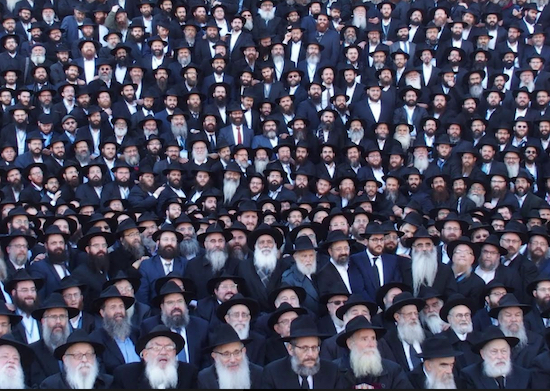Is Pirkei Avot just a bunch of stuff written by rabbis for other rabbis? Sometimes it might just feel that way.
We learn in Avot 5:17:
אַרְבַּע מִדּוֹת בְּהוֹלְכֵי בֵית הַמִּדְרָשׁ:
הוֹלֵךְ וְאֵינוֹ עוֹשֶׂה, שְׂכַר הֲלִיכָה בְּיָדוֹ. עוֹשֶׂה וְאֵינוֹ הוֹלֵךְ, שְׂכַר
מַעֲשֶׂה בְּיָדוֹ. הוֹלֵךְ וְעוֹשֶׂה, חָסִיד. לֹא הוֹלֵךְ וְלֹא עוֹשֶׂה, רָשָׁע
There are four types among those
who attend the study hall (Bet Midrash). One who goes but does nothing gets
a reward for going. One who does [study] but does not go to the study hall gets
a rewards for doing. One who goes and does is a chasid. One who neither
goes nor does is wicked.
This teaching, at face value, has nothing to offer the
ordinary man or woman in the street. Rather, it appears to have something only
to those who have elected to spend their days in learning Torah and who manifestly
have contrasting attitudes towards the nature of their commitment.
The Kozhnitzer Maggid offers an imaginative explanation that
has nothing to do with Batei Midrash in the physical sense at all.
Torah learning, indeed all forms of learning and spiritual
growth, take place inside a person’s heart and mind. That is the “study hall”
of our mishnah. Now let’s look at the four types of person it describes.
The first has the necessary skill and ability to touch the
heart of others, regardless of their level of knowledge or commitment. But he
fails to capitalise on the opportunity to do so. Maybe he is just unsuccessful;
maybe he never really tries.
The second doesn’t make the effort to plumb the depths of
another person’s psyche or intellect. However, whether through his behaviour or
his demeanour he manages to influence that person just the same.
The third has the ability to touch another’s heart and
mind—and does so successfully, contributing to that other’s spiritual,
emotional or intellectual growth. He is the chasid (for our purposes, chasid
basically indicates a really good person).
Finally we find the person who has no empathy with others,
does not understand them and has no real interest in doing so. He or she never
even makes the effort. This is not the sort of person we should seek to be.
As can be seen, this breakdown of inspirational and non-inspirational
characters works well not only for Torah educators but for parents,
counsellors, role models and close friends. We can all learn from it and, in
doing so, be of great assistance to those we have the power to encourage or
inspire.
Comments and discussions are on this post's Facebook page here.
